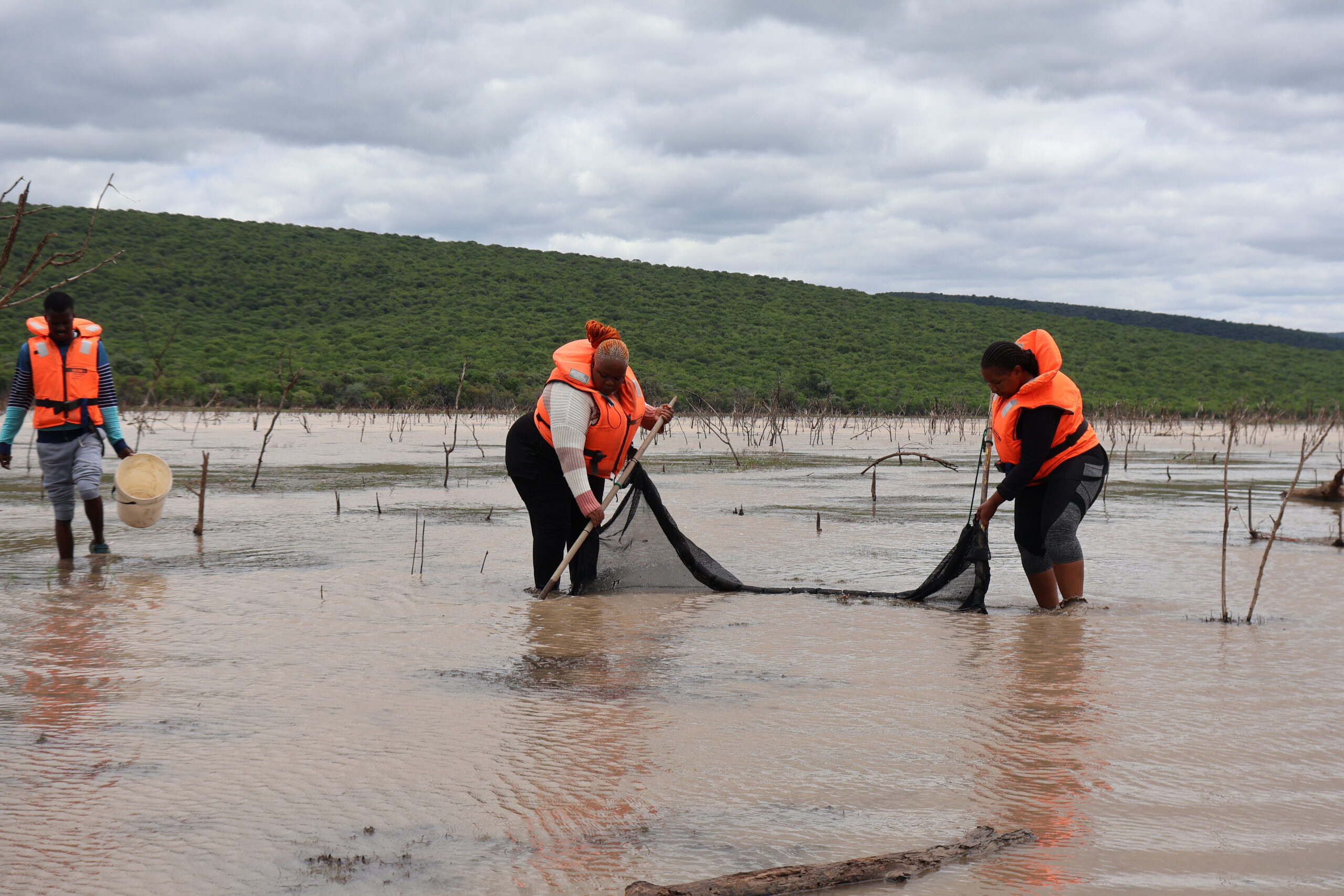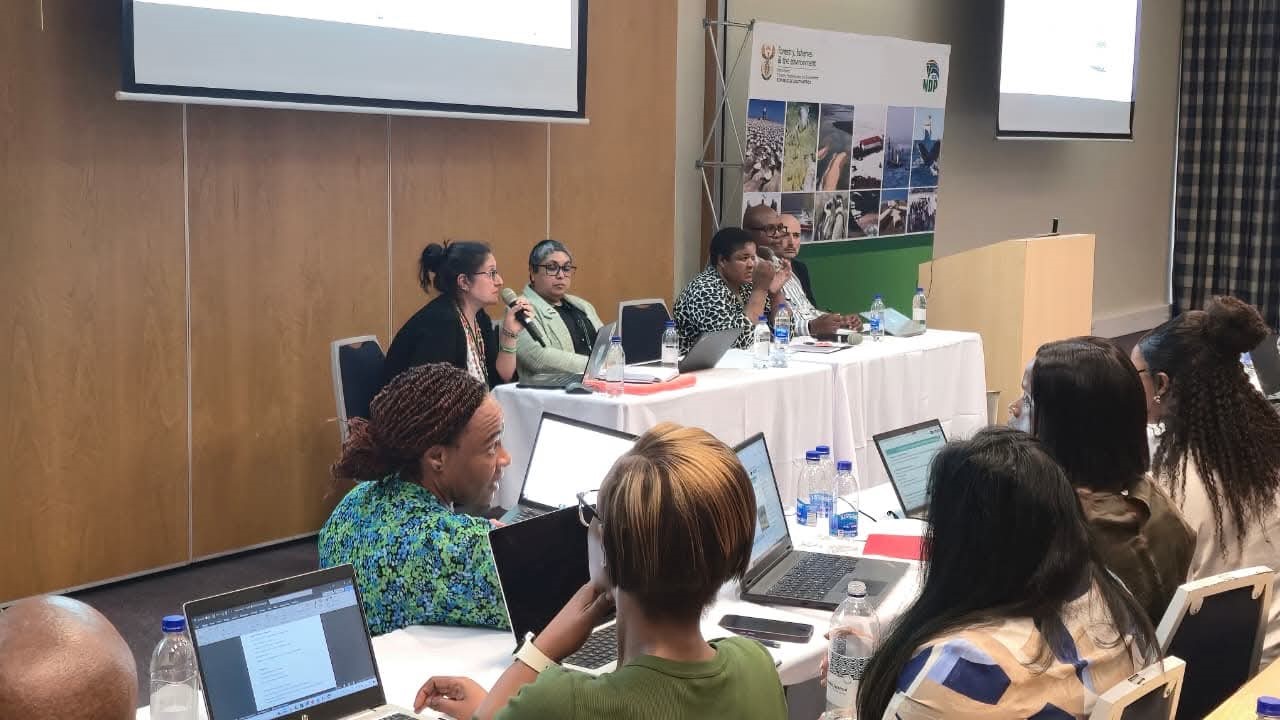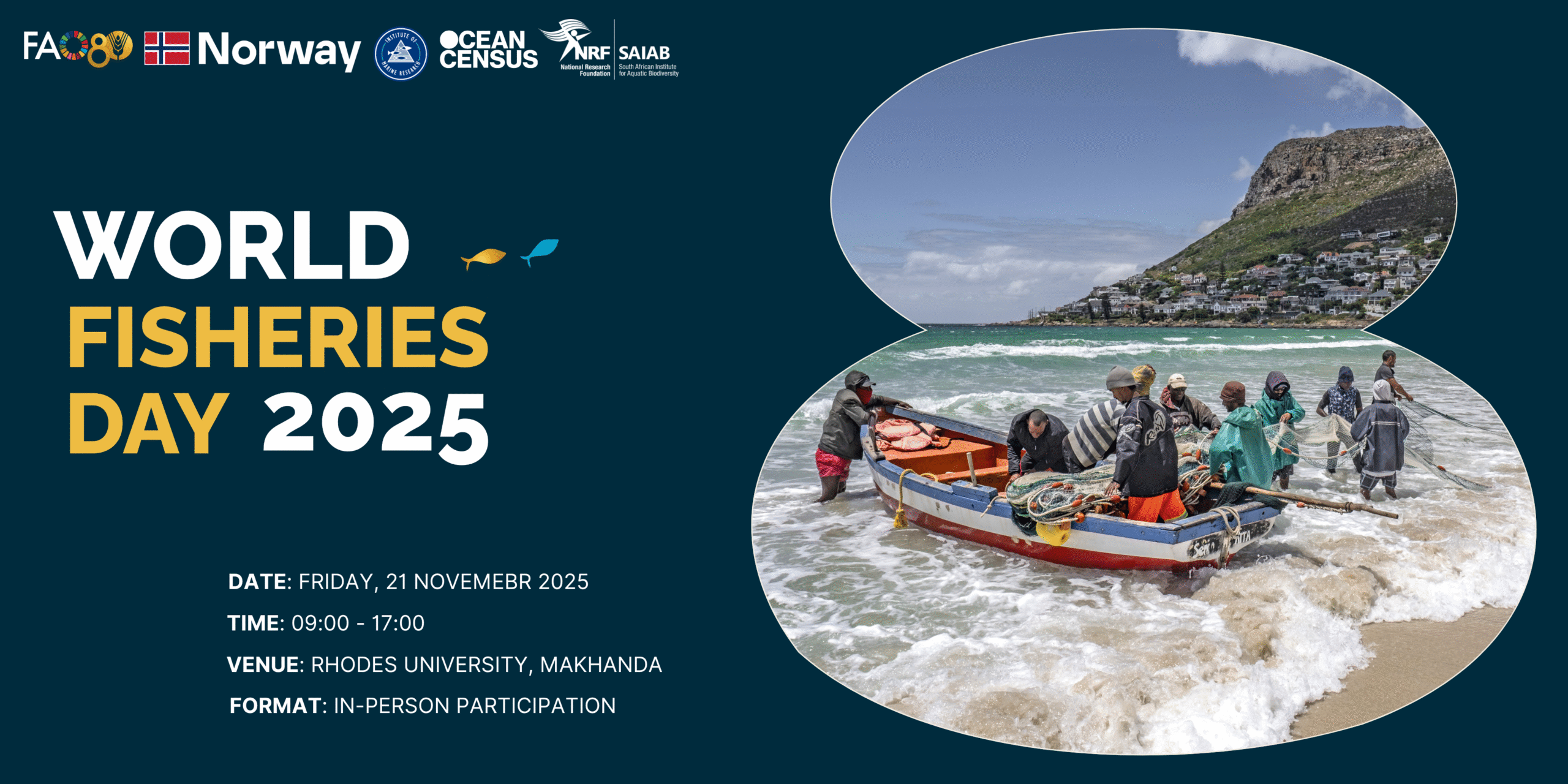In a return to his academic roots, Dr David Ebert, Honorary Research Associate, and Honorary Curator of Chondrichthyans (cartilaginous fish) at the NRF-SAIAB, along with being the Program Director at the Pacific Shark Research Centre in Moss Landing, California, revisited the Institute to share his expertise and insights. Dr Ebert’s journey with the institute began over three decades ago when he first stepped into NRF-SAIAB as a student.
Dr Ebert’s association with SAIAB dates back to his student days at Rhodes University, where he first studied a Bachelor of Science in the Department of Ichthyology and Fisheries Science from 1986 to 1990. Under the mentorship of Leonard Compagno, a stalwart in the field of ichthyology, Dr Ebert initiated his shark research at SAIAB, marking the commencement of a longstanding relationship with the institute.
The recent NRF-SAIAB Seminar Series held in Makhanda provided a platform for Dr Ebert to share his experiences and insights with the audience, especially the youth in attendance. His presentation, titled ‘Searching for Lost Sharks,’ not only delved into his current research but also offered a glimpse into his remarkable journey in the field. Reflecting on his past and present connection with NRF-SAIAB, Dr Ebert shared, “I had a very good time when I was a student at SAIAB, and I made a lot of very good friends. Coming here 30 years ago, I was just a student. Now, I’m returning at a later stage in my career, trying to share my knowledge and motivate young people.”
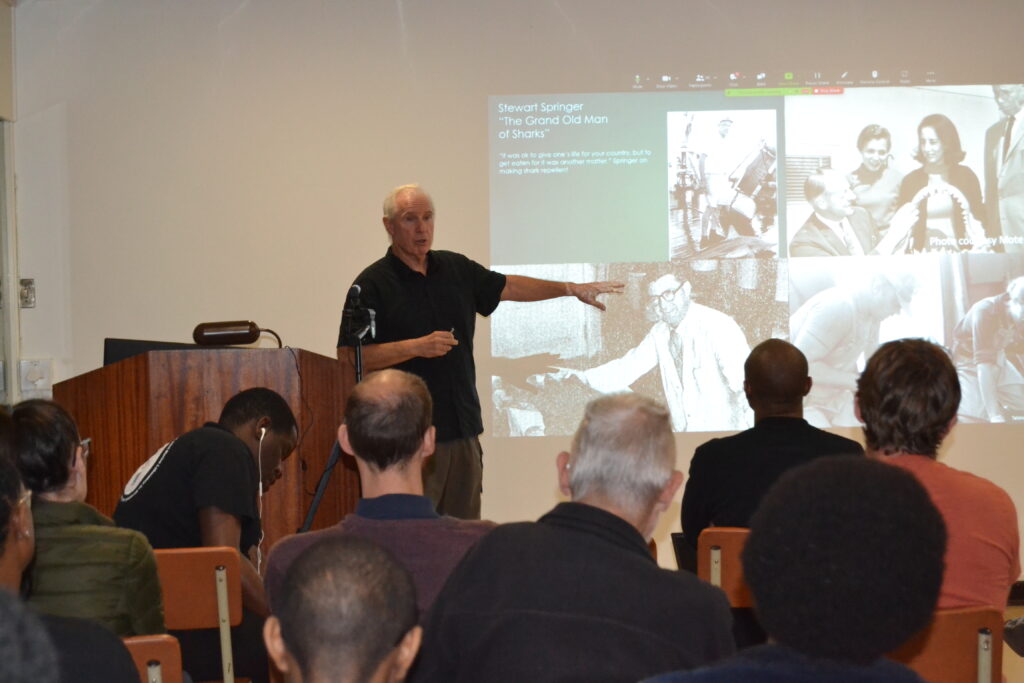
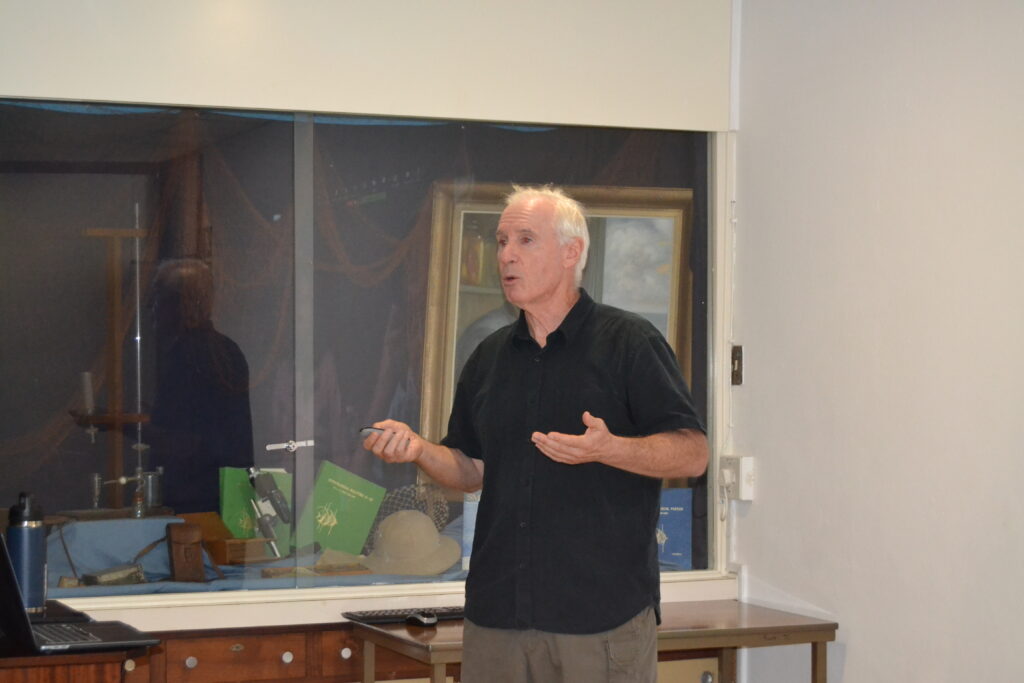
Dr David Ebert giving his talk as part of the NRF-SAIAB Seminar Series presentations.
Encouraging the next generation of scientists, Dr Ebert urged attendees, especially young minds, to pursue their passions with unwavering determination. “It is not going to be an easy thing to do, but if you think it’s something you want to do, just pursue it with as much energy as you can,” he emphasised.
Beyond motivational words, Dr Ebert also addressed common misconceptions about sharks. He emphasised the crucial role that sharks play in maintaining the health of the marine environment. Dr Ebert clarified, “Sharks are important for the ecosystem and the health of the marine environment. While there are a few shark species that may bite people occasionally, most species are small and harmless. Rare incidents involving species like white sharks, Zambezi or bull sharks, and tiger sharks are very rare, even in South Africa.”
During his visit, Dr Ebert also took the opportunity to explore the SAIAB collections for shark specimens for his ongoing research. He emphasised the significance of scientists reaching out to collections when they require specimens for their studies, fostering collaboration and the advancement of scientific knowledge.
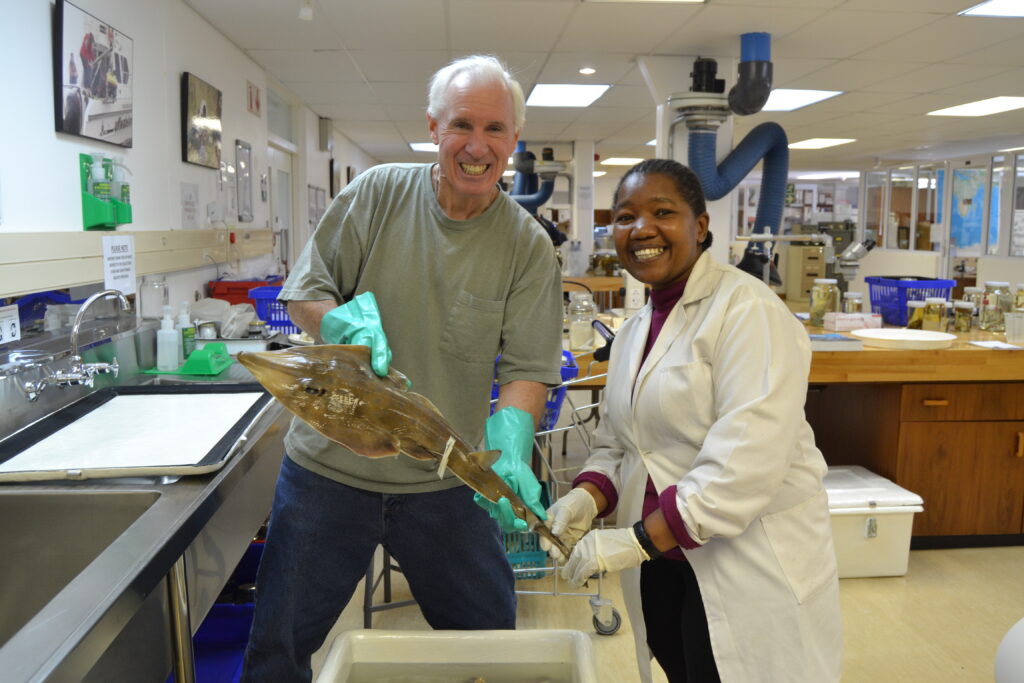
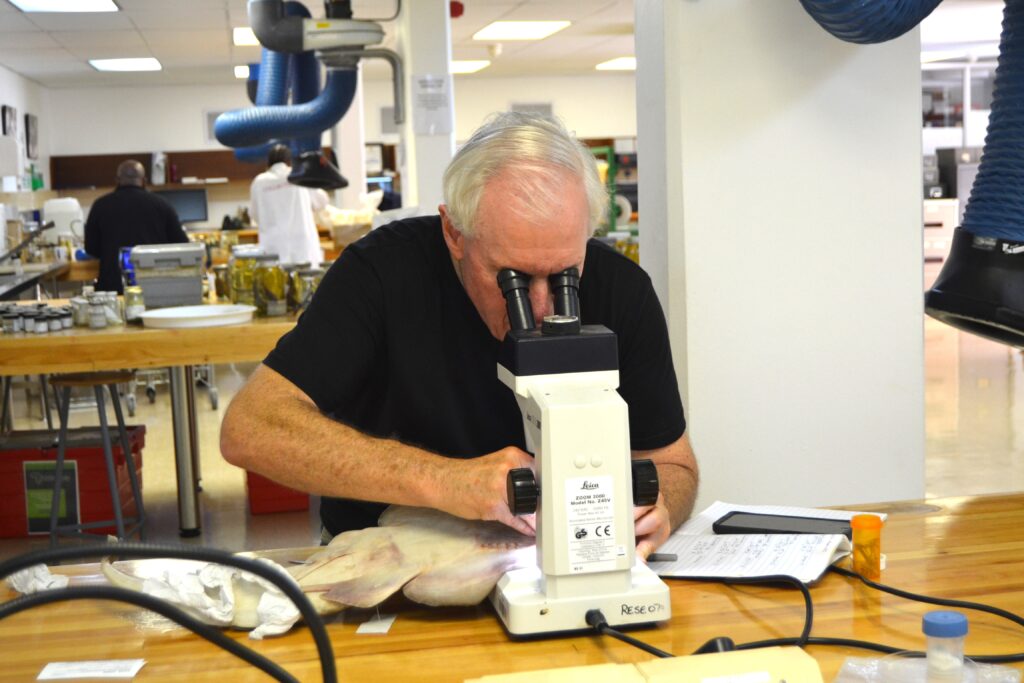
Dr Dave Ebert training NRF-SAIAB’s postdoctoral researcher in the SAIAB Collections
Dr. David Ebert’s recent visit to NRF-SAIAB not only left a lasting impact on the institution as a whole but also resonated deeply with postdoctoral researcher Dr. Yonela Sithole. Expressing her excitement, Dr. Sithole remarked, “The talk was truly inspiring, offering valuable insights into the world of an extraordinary explorer. I love listening to other people’s career journeys and can relate, especially from other taxonomists. One key takeaway for me from his talk was understanding that cultivating a positive attitude, drive, and a deep passion for my career choice taxonomy can lead to achieving great things, much like him.
Dr. Sithole further expressed her enthusiasm for the rare opportunity to be trained by Dr. Ebert during his NRF-SAIAB visit. “Learning from the shark expert and someone with extensive knowledge and expertise is truly inspiring as an emerging fish taxonomist. I deeply appreciate the chance to be trained by him during his SAIAB visit. This experience served as a learning curve for me as I only have basic knowledge of shark identification. Thankfully, Dave was patient and guided me through the key characteristics that I need to know for distinguishing families, genera, and species,” she added.
In conclusion, Dr Ebert’s recent visit to NRF-SAIAB not only showcased his accomplishments as an expert in chondrichthyan research but also emphasised the importance of mentorship and knowledge-sharing. As he continues to contribute to the scientific community, his journey serves as a source of inspiration for the youth, instilling a sense of curiosity and dedication to the fascinating world of ichthyology and fisheries science.

